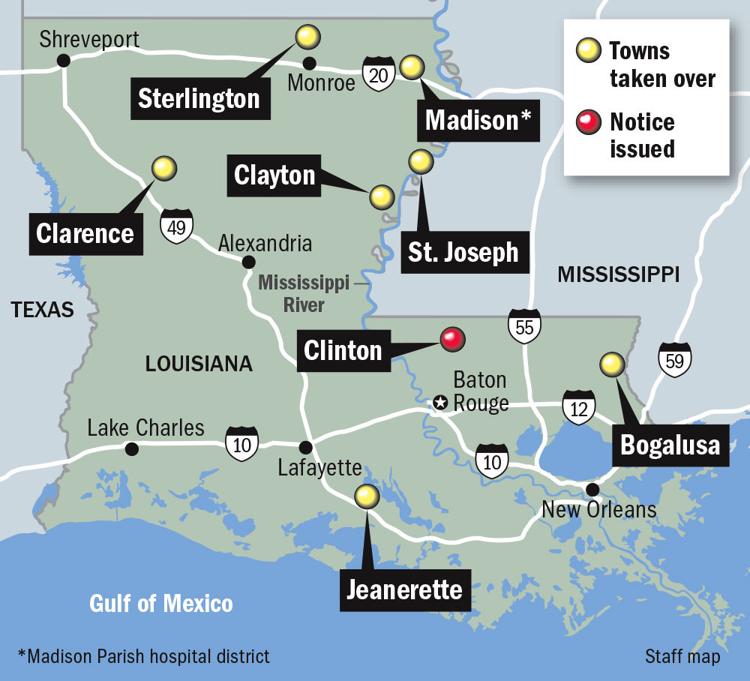
By Joseph Rosen and Nath Clarke
Across rural Louisiana, villages and towns have seen their elected governments replaced with the dictatorship of a “fiscal administrator” appointed by a committee run by Attorney General Jeff Landry. Without the input of any of the towns’ residents, these “administrators” are authorized to lay off public workers, raise fees, and make cuts to education, utilities, and other public services—all in order to make payments on the debts incurred by past municipal governments.
The Fiscal Review Committee is made up of multi-millionaire Attorney General Jeff Landry, Legislative Auditor Daryl Purpera who has spent years trying to cut Medicaid funding, and State Treasurer John Schroder who is bought off by the Louisiana Association of Business & Industry, a group of ultra-rich CEOs and corporate bosses.
Every year, the Fiscal Review Committee declares towns, villages, and cities “financially unstable”—which can mean anything from the failure of a city government to pay back bank loans to a failure to provide an audit. Eight towns are currently under the rule of a fiscal administrator; as many as fifteen are being eyed by Purpera.
Clayton, Louisiana has been under the thumb of a fiscal administrator since 2017. Because their water system is not “profitable enough,” the Fiscal Review Committee is suggesting they increase the monthly water rate by $10. In a town where 40% of residents live below the poverty line, an extra $10 monthly expense can send a family down the path of ruin. Elsewhere, the committee has proposed cuts to public hospitals which have often been left to ruin for years already, cuts to public schools, and water shutoffs for entire villages. In Clarence, Louisiana, the Fiscal Review Committee recommended increasing traffic fines and fees in a village where fines and forfeitures already comprise more than half of the village budget.
Under the capitalist mode of production, the infrastructure that supports a community of workers is left to rot as soon as capitalists find another place to get their profits from. This applies to cities like Detroit and Flint whose workers produced billions of dollars of wealth for the owners of auto manufacturing plants just as it’s true for Bogalusa, once home to the most productive sawmill in the world. The workers of these cities now live under “emergency managers” where even the elected members of the capitalist government do not have a say over the direct appointees of the banks. Their “fiscal administrators” demand that the working and oppressed residents not only fend for themselves but pick up the tab for the debts incurred by their previous capitalist rulers. Add to this the cost of living with the environmental ravages left by capitalist exploitation.
Workers around the world are standing up to free themselves from the stranglehold of institutions such as the International Monetary Fund that demand that workers sacrifice their pensions, their jobs, their land and their security so that their capitalist governments can keep an open line of credit with the imperialist banks.
Just as workers across the world from Haiti to Chile have stood up to the dictatorship of the banks, so must Louisiana workers rise to defend their right to a life of dignity. Louisiana workers, demand your freedom: Cancel the debts! Fire the fiscal administrators!
